Superman, Alienation, and Evil
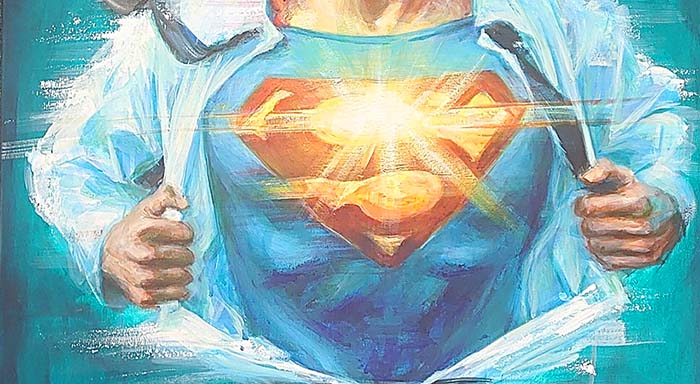
Superman was one of the world’s first superheroes and, to this day, he remains one of the greatest of all time – greatest, that is, in terms of raw, unbeatable power. Some fans have proposed that Superman is too powerful to be relatable. To make his stories interesting, writers try to focus on aspects that potentially hinder him, particularly his identity as the Last Son of Krypton.
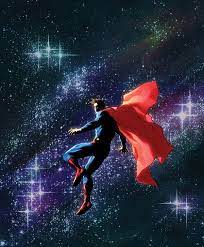
Much like his readers, Superman can feel alone surrounded by a crowd of people. Because he is an alien, no one else knows the feelings and circumstances he experiences. This loneliness can tempt anyone to lash out. But, of course, Superman doesn’t. His continual choice to restrain himself is one of the things that make him a hero.
In the decades since Superman’s introduction, many other characters have been created as homages, parodies, and attempts to capture the same success as the original. These characters inevitably feel similar alienation, but they may react differently. Some of them use their isolation as motivation to fully become a villain.
This raises certain questions. What factors keep a character like Superman from descending into villainy? What elements cause other characters to give into the temptation? What can audiences learn about loneliness and our own responses to it?
The OG: Man of Steel
Sent away from his home planet on the day of its apocalyptic destruction, infant Kal-El was not only orphaned at birth; he is believed to be the last surviving member of his race for years. Kal-El is raised by humans on Earth as Clark Kent, and although his appearance is indistinguishable from Caucasian humans, he quickly learns he possesses abilities far beyond Earthlings.
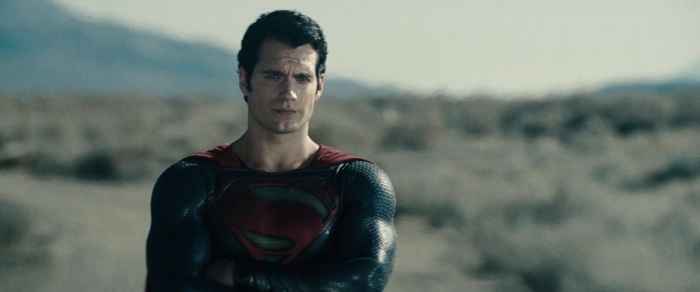
Even when Clark is hiding his superior nature, he often feels alienated. He is constantly aware that he hears, sees, and smells things that no one else notices. Every time he touches an object and keeps himself from crushing it between his fingers, he reminds himself of how different he is.
In the 2013 movie Man of Steel, Clark focuses on the mystery surrounding his origin. Although the audience knows where he came from, Clark did not know for most of his life. As a result, he struggles with his identity – not knowing where he comes from makes him feel he doesn’t know who he is. He is fairly certain he’s not human, so he feels alienated from humans with biological families.
This is relatable to anyone who is separated from one or both of their biological parents. Adopted children, children of absent parents, and immigrants growing up far from their ancestral and cultural home can all feel separation from parts of their identity. The popular solution, in cases where people cannot access information about their origins, is accepting the families that raised them and building their identity that way. This is Clark’s solution for most of his life.
When Clark finds a ship from his planet, he finally learns details about his biological family, the destruction of his world, and the reason he was sent to Earth. Now knowing where he came from, he feels much comfortable with his identity. Not long afterwards, he learns that he was not the only one to survive his planet’s destruction.
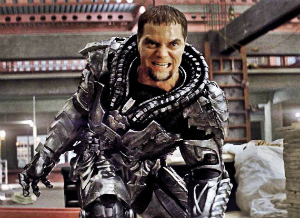
A general from his planet named Zod and his military entourage arrive on Earth in search of Clark and the ship he traveled in as an infant. They reveal Clark’s existence to humanity, and their destructive hostility makes everyone concerned that the aliens are dangerous invaders. Clark is simultaneously no longer alone and one step closer to realizing his fear of being alienated by the humans.
In the end, Clark’s solution is destroying the invaders to protect humanity. He is alone again, but the majority of humanity sees him as a hero. He has a good relationship with humans, so he only feels alienated when he perceives himself as different. The alternative was being with his own people but being feared by any humans who survived Zod’s destructive plan.
All Men Are Created Equal… Except Superman: Blue Marvel
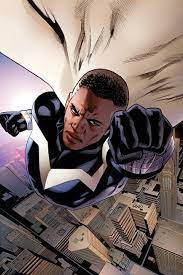
Marvel Comics has made multiple homages to Superman. One with particular resonance is Adam Brashear, aka Blue Marvel. Adam is human, albeit very athletic and very smart. A science experiment gone wrong gave him all the power of a walking anti-matter reactor, power on par with Superman. In the 1960’s, he was one of the world’s greatest superheroes. The only problem was Adam is African American – particularly problematic in the 60’s.
At the beginning of his superhero career, Blue Marvel wore a mask to conceal his skin, knowing prejudice would make superhero work difficult. When his mask was a torn in a battle with his nemesis, the public knew the truth. The reaction was immediate and unfortunate: racially motivated violence.
The comic’s depiction of President John F. Kennedy summarized the situation: “Now that a colored man has come along who can stand up to [white people], we become paranoid, frightened children.” Kennedy also observed that other black people didn’t support Blue Marvel, either. “They expect him to be some sort of Negro Messiah and kill all the white people… [but] he refused to lead them in a genocide against us.”
Despite Blue Marvel being invulnerable to any physical harm, the people’s words and anger surely hurt. Everything he did for them – saving them from space debris, nuclear explosions, and supervillains – doesn’t seem to matter because of the color of his skin. This goes beyond Superman’s fear of alienation; Blue Marvel has experienced it as a certainty.
In Blue Marvel’s case, people’s fear of him is even more understandable than for other Supermen: Adam has cause to be angry at people who have discriminated against him and his kin, and he has the power to take out his anger on them. He does indeed feel angry at the world, but he is also afraid of the damage he would cause, directly or indirectly, if he stayed in the public eye. Together, this rage and fear cause Blue Marvel to alienate himself. He almost gives up on the world entirely until his nemesis returns, prompting him to become a superhero again.
Adam Brashear’s situation is unfortunately relatable to any member of an ethnic minority. They feel alienated when members of the majority population discriminate against them. Like Blue Marvel, they may hesitate to attract attention to themselves because it could be negative attention. But, also like Blue Marvel, many of them realize that even if the world seems to be full of prejudice, there are always people worth caring for and protecting.
There is But One God: Dr. Manhattan
Alan Moore’s Watchmen comic explored a realistic look at how masked vigilantes would affect America’s history. The comic also introduced one of the most powerful super-beings ever created: Jon Osterman, aka Dr. Manhattan. This glowing blue bald giant is referred to as “the Superman,” as well as “God.”
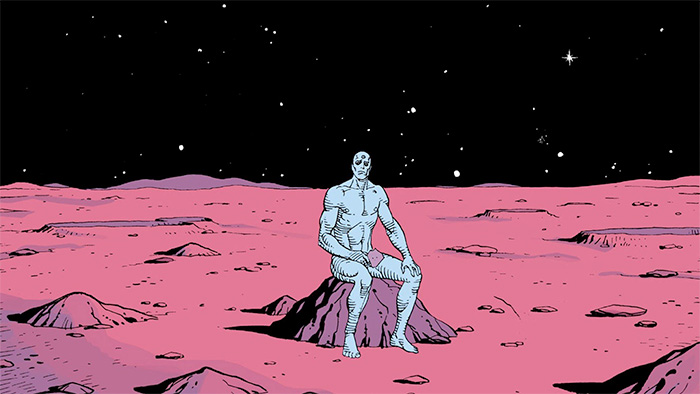
Jon’s powers include an elevated perception of time. He experiences every moment of his own life at once, including the future. This omniscience, combined with near imperviousness to harm, makes him apathetic about virtually everything – there are numerous tragedies he foresees but does not prevent. He grows increasingly detached from his emotions and loses empathy for human problems. There are no other god-like beings in his world to relate to his feelings or experiences, so he feels isolated.
Ironically, another side effect of being so powerful is Jon seeing himself as a prisoner of fate. He foresees every decision he makes before he makes it, so he does not think he has free will. This contributes to his self-perception of alienation, as does his nature as a walking radioactive weapon of mass destruction. The general public needs to trust that he won’t use his powers against them; that trust begins to break as a villain frames Jon for several radiation-related incidents. People begin to turn on him out of fear, so he decides to leave Earth and start fresh on Mars. His self-perception of his own alienation is complete.
It is difficult for many audience members to relate to Dr. Manhattan. No one is as different from other people as he is. Still, loneliness is a common enough affliction. Also, just as he is blamed for hurting others unintentionally, many audience members feel like they habitually hurt people. This can cause people to alienate themselves, just like him.
After Watchmen‘s climax, Jon feels the alienation from humanity will only increase, so the best thing is for him to leave, after all. This may seem like an unfortunate conclusion, but it is not the most tragic or pessimistic. When a Superman archetype feels alienated from humanity, there is a worse outcome than abandoning them: namely, turning against them. This outcome has been explored a few times throughout superhero fiction.
Together, We Can Rule this World as Father and Son: Omni-Man
The universe of Robert Kirkman’s Invincible has its own version of Superman: Omni-Man. Born on a planet of supremely powerful super-beings called Viltrumites, Omni-Man came to Earth with a secret purpose: to conquer humanity, bring the planet into the Viltrumite empire, and kill anyone who resists. Although he pretends to be a hero like Superman, he eventually reveals himself to be more like General Zod.
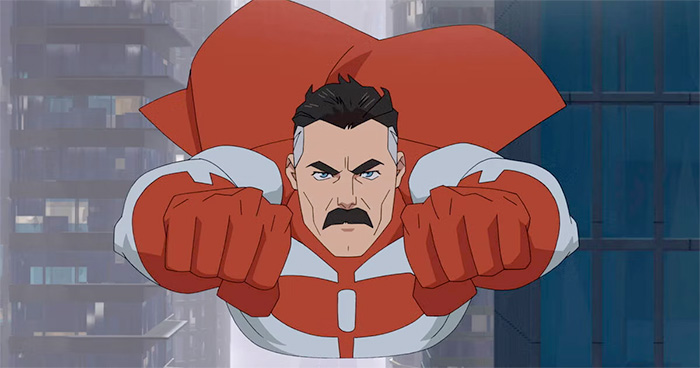
Omni-Man’s motivation comes partially from a “might makes right” philosophy. Humans lack the superpowers and technological advances of his people, so according to Omni-Man, the natural thing is for him to rule them. This philosophy is a common justification for the strong trying to control the weak.
The other motivating aspect of Omni-Man’s experience is immortality. In addition to being very hard to kill, he ages extremely slowly. He has lived for centuries and will live for thousands more years; human lifespans are like mayflies relative to his. Thus, killing any humans who are a nuisance is like squashing insects to him.
These two things combine to create a form of alienation for Omni-Man. Before he reveals his true nature, most people readily accept him as their hero. His alienation only comes from himself. He is one of the less relatable versions of Superman because few people develop a superiority complex as extreme as his, and no one has his lifespan, so no one has the mindset that comes with it.
Ultimately, the only thing that changes Omni-Man’s mind is his half-human son, Mark. Omni-Man wants Mark to join him in conquering Earth, but Mark refuses. Mark appeals to their relationship; Omni-Man is reminded that he has not been entirely alienated from humanity, even if he believes it is what he wants. This brings enough human-like emotion out of Omni-Man’s otherwise cold heart to make him stop.
After abandoning Earth, Omni-Man finds himself on a new planet, surrounded by a civilization of insectoid people. These people have considerably shorter lifespans than humans; Omni-Man should see them as even more inferior than the Earthlings. But he actually cares about them, and no one is more surprised than Omni-Man himself. His time on Earth had more impact on him than he realized; his self-alienation has apparently been cured. As of this writing, it remains to be seen in the show if he is still evil or redeemable.
All It Takes Is One Bad Day: The Plutonian
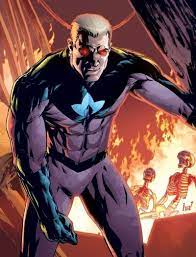
Another obvious homage to Superman is the Plutonian (“Tony” for short) from the comic series Irredeemable. Sharing many superpowers with the original Superman, the Plutonian is his world’s greatest superhero. He spends a while saving people, fighting supervillains, and being fairly responsible. Then he makes a mistake. A problem gets wildly out of control, and many people die. The Plutonian bears some of the responsibility because he could have prevented it but didn’t.
Unfortunately, the Plutonian is really bad at taking criticism or accepting responsibility for errors – he can’t handle anyone thinking he is less than perfect. He takes extreme measures to try to keep people from learning about his mistake, especially the people closest to him. The situation escalates until Tony goes completely rogue, making humanity fear him instead of admiring him.
Like the other Supermen on the list, the Plutonian feels alienated because he is the only one of his kind in the world. He makes friends with some fellow superheroes, some of whom are very close to his level, and this makes his experience easier. But then he discovers that one or two of them don’t completely trust him, even before his tragic mistake comes to light. He reacts to this as if his allies had completely rejected him; the alienation he perceives is much more extreme than what is really there.
Of course, when the Plutonian turns on his allies and the rest of the world, his allies pretty much fully commit to fighting back and stopping him by any means necessary. His perceived alienation is a self-fulfilling prophecy. Truly left without friends and suffering losses on his own, Tony seeks out new allies. He forms a team of psychopathic alien monsters to help him finish off his enemies, but he ultimately loses them much the same way he lost his previous team.
The Plutonian’s experience is somewhat relatable to audiences because no one enjoys being criticized, and many people feel like they are continually rejected by others. He is an extreme example, however; with the amount of power and responsibility in his hands, the smallest slip in judgment has significant consequences. Trying to deny all responsibility for the sake of his own ego ends up being just as dangerous as his mistakes.
The Only Man in the Sky: Homelander
In the world of The Boys, superheroes are created and controlled by a pharmaceutical corporation called Vought. Their greatest success is Homelander, whose powers are a clear homage to Superman’s. He is considered his world’s greatest superhero, and he leads Vought’s official super team, the Seven. He is also a terrible person, but Vought’s marketing team helps him maintain a public persona of faultless heroism.
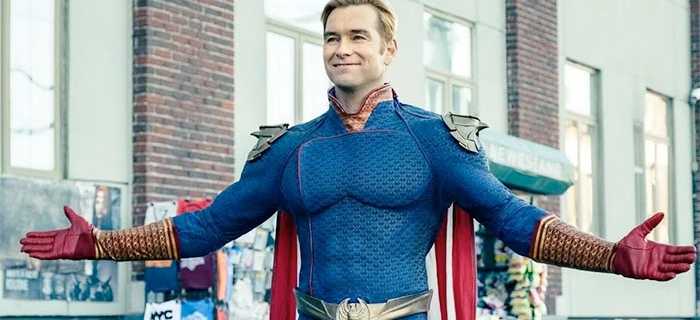
Although Homelander is, technically, a human, he considers himself superior to every other human, even the other superheroes on his own team. Much like Omni-Man, he kills people without hesitation or remorse; in fact, he often gets a twisted pleasure out of throwing his power around. This superiority complex is Homelander’s own form of self-alienation.
However, he is desperate for connection, attention, and validation. For the most part, Homelander gets this attention and validation from his adoring public. He wants the people to love him, which is why he counts on Vought to help him keep his sins hidden.
Over the course of the TV show, Homelander makes multiple attempts to form meaningful connections with specific people: a maternal figure, a lover who may be just as powerful as him, a biological son who inherited his powers, and a biological father. He even tries to maintain a relationship with Billy Butcher, one of the few people who dare actively oppose him. Homelander considers Butcher worthy of being his nemesis, and that is enough of a connection for him to let Butcher live (for the time being, anyway).
Like Omni-Man’s relationship with Invincible, Homelander’s relationship with his son, Ryan, is one of the few things that can rein in his aggression. While Homelander’s enemies are keeping Ryan in a secure location, Homelander does not act directly against them. This does not last, of course, because Homelander eventually finds Ryan. In a climactic confrontation, it is only at Ryan’s insistence that Homelander leaves, sparing Butcher and his allies. Later, when someone acts aggressively toward Ryan, Homelander publicly murders the attacker – clearly, his connection with Ryan is not solely beneficial.
Homelander is probably the least relatable of all the Supermen – at least, his character is written to show audiences that he should not be relatable. He is a villain, not to be pitied or sympathized with. However, as his backstory is revealed, his motivations become understandable; fans can see how close the original Superman could have come to turning out just as villainous. Analysis of the various Supermen may clarify why some of them turn evil and others do not.
How to Raise Your Superman
Although all characters in this discussion are responsible for their own decisions, a key difference among all of them is how they were raised. The original Superman owes some or all of his strong moral character to the influence of his parents, Jonathan and Martha Kent. Accepting him as if he was their own child, they raise Clark to believe his powers are a gift for the benefit of everyone.
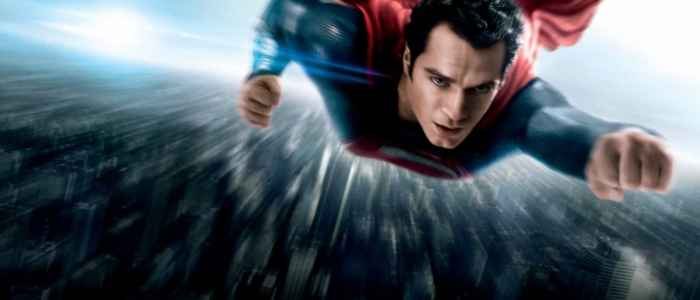
The Kents also caution Clark to hide his powers from the humans. They are concerned that people will alienate him out of fear if they know how powerful he is. This concern is a major reason Clark adopts an alternate identity, Superman, to use his powers in public. It is also part of why he becomes a hero instead of a villain; his parents would want him to be appreciated as a hero rather than feared as a villain.
The Plutonian, on the other hand, grows up being passed from one foster home to another. Whenever he breaks something or hurts someone with his superpowers, he is sent away. This prevents him from forming meaningful connections with anyone. It also causes him to develop a sort of persecution complex, always feeling like “one little mistake” will make everyone turn on him; this prompts him to turn on everyone.
Homelander was born as a science experiment, raised in a corporate pharmaceutical lab, and monitored by scientists instead of cared for by loving parents. Even the lead scientist who takes responsibility for creating him realizes that this was a mistake. This lack of childhood affection is responsible for Homelander’s craving for affection and validation as an adult. Most of the validation he gets is for displays of his power, so he becomes obsessed with asserting his power over everyone else as aggressively as possible.
Unlike the other Supermen, Omni-Man grew up on an alien planet before coming to Earth. We know virtually nothing about his childhood, but it is clear he was raised to believe he is superior to all weaker and shorter-lived life-forms, like humans and the insect people he meets later. He believes his empire is doing every other world a favor by conquering them because that is what he was taught to believe.
The people who raised the Plutonian and Homelander had one thing in common: they were terrified of the young super-being. This motivated them to keep the boys at a distance, tragically starving them of affection. In the original story, the Kents chose love over fear, and that made a world of difference.
Although audiences have never met Omni-Man’s parents, we have gotten a brief introduction to his people, the other soldiers of the Viltrumite empire. When Omni-Man abandons Earth without conquering it, he alienates himself from these fellow soldiers. Much like General Zod, they decide a superior being who values the lives of “inferiors” must be weak, and they sentence him to death.
This contrasts with Superman’s parents, who instill in their son a belief that the “weak” humans are not inferior. They are precious lives to be protected. In Man of Steel, Superman kills General Zod, his only remaining link to his ancestry, to stop him from killing some humans. This difficult choice is inspired by the connection he feels to humans like his parents.
We All Want to Be Loved
Readers do not learn much about Adam Brashear’s upbringing; we don’t know what lessons his parents taught him. Audiences do know that he grew up under constant barrage of racism from the white majority, despite his repeated successes in athleticism, academics, and honor – he earned two Silver Stars in the US Marine Corps.
Adam could have concluded that humanity was not worth protecting, not because they were weaker than him but because they were cruel to him simply because of the color of his skin. Thankfully, as Blue Marvel, he leans more toward optimism. This is less because of his parents and more because of another human connection: his wife.
Adam’s wife was secretly planted in his life by the US government to spy on him. When he learns this truth about her, he is angry that humanity continues to mistrust him. This is part of the reason he considers abandoning humanity. But it is his wife’s death that inspires him to fight to protect Earth; to him, much like Lois Lane, she represents the part of humanity that is worth protecting.
This is the other common thread in determining whether a Superman feels alienated from humanity: romantic companionship. The original Superman has Lois Lane; Lois first sought him out because she was curious, but throughout their relationship she has tried to be his reminder that his purpose is protecting humans who desperately need his help.
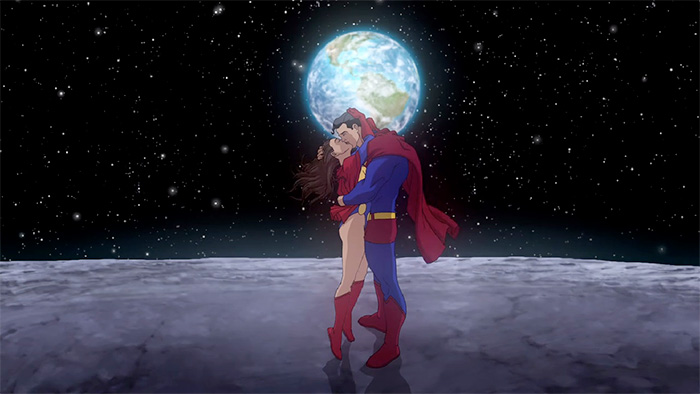
Dr. Manhattan struggles to maintain a romantic relationship for the same reasons he struggles to relate to any human. However, his relationship with a fellow hero, Lori, turns out to be the most important thing in his life. Because Jon does not think he has free will due to his relationship with time, he hesitates to make a decision even when the world is at stake. He trusts Lori, though, and he can act when she asks him to; he tries to save humanity for her sake. This once again demonstrates the importance of a human connection in stopping a Superman from alienating himself.
Omni-Man’s says he loves his human wife, Debbie, but because her lifespan is so short compared to his, she is “more like a pet” to him. The implications for their relationship are devastating, but this too is understandable when taken with Omni-Man’s backstory. Romance, especially with an “inferior” human, does not serve the Viltrumite empire except as a tool for reproduction.
In spite of this, shortly after Omni-Man leaves Earth, he starts a new relationship with an insect-humanoid. From Omni-Man’s perspective, this woman is even more “inferior,” but he cares about her far more than even he expects. Love, then, truly is the driving force in Omni-Man’s character development and his potential redemption arc, which has only just begun.
The other “evil” Superman also seem to need romantic love, although it is more twisted. Before his descent into evil, the Plutonian had a fling with a woman from his superhero team called Bette Noir. When his rampage begins, Bette realizes she has a way to stop him, but she doesn’t. Eventually, the guilt drives her to consider suicide, but the Plutonian has decided to keep Bette alive, partially out of cruelty but also out of something he calls love. He does not care about her best interest at all, but she is his chosen person.
Homelander, like most superheroes in The Boys, is a hedonist who sleeps with women for pleasure without romance. Part of his twisted craving for attention is a perverted attraction to his handler, Madeline Stillwell. She tries to use this to keep him under her control, but when he realizes that she does not care about him as much as he wants her to, he kills her.
Not long after this relationship ends, Homelander meets Stormfront, a superhero who actually rivals his power and popularity. The tension between them quickly becomes a romance. Stormfront reveals she plans to use Homelander to lead an army of white supremacists to conquer the world. He seems to be okay with this because he considers Stormfront his only equal. Unfortunately for him, Stormfront gets badly injured; when she dies, Homelander spirals into his own subtle rampage. He decides if he cannot find an equal, he may as well assert himself as superior to everyone else.
Treating love as a search for an equal can be quite disappointing, especially for a superhuman like the Plutonian or Homelander. True romantic love should be about each partner serving the other. For Superman, serving his partner is a sort of metaphor for serving all of humanity. Omni-Man seems to learn this lesson, although it may be too late for him.
Anyone can feel alienated and alone, even someone as powerful as Superman. Superman’s reaction to these feelings should inspire audience members to follow his example. Blue Marvel demonstrates the best response to the realities of prejudice. Dr. Manhattan’s response to the possibility of hurting or scaring people is to maintain a safe distance when necessary. These heroes are our role models.
If people do not follow these examples, the same circumstances can create the worst villains. Omni-Man and Homelander turn their self-isolation into superiority complexes. The Plutonian blames the world for his feelings of alienation and lashes out against it. The tragic effect for these people is losing the few connections they have and feeling even worse than before.
What do you think? Leave a comment.
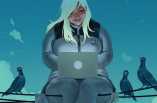
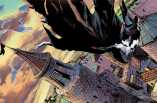

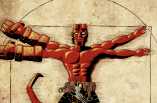
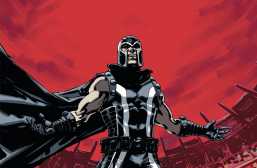
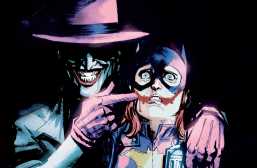
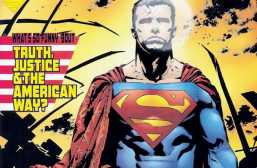
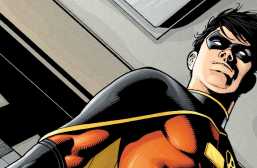
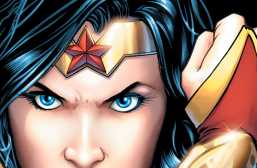
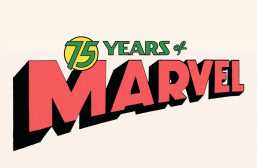
Missing commentary from Brightburn. The alien will not always be humane.
Fair point. I didn’t want to throw in too many examples.
Brandon Breyer developed a superiority complex from his superior intelligence and his superpowers, but it was mainly his spaceship messing with his head. His parents tried to raise him well and show him love and human connection, but he was simply unresponsive to them. Not much there for audiences to find relatable, so I left him out of the discussion.
Clark Kent is a man who can see and hear practically everything in the world. Every crime, every act of cruelty, every single one of humanity’s worst aspects. He can get it all and much more than anything even the Internet can put up on our screens and on our phones. And yet for all of that, he still somehow manages to see the best in humanity, somehow manages to keep his faith in us, and always thinks we’re worth saving.
That’s an amazing aspect of his character no matter what time period he’s in, but it feels especially poignant these days. If there’s any one thing I want from the DCU reboot’s Superman, it’s for them to really show his relationship with humanity. The DCEU had him be a lonely god among us. Let the world see him as a friend who won’t give up on us even at our worst.
I love Superman. Just seeing him Smile or save someone does fills me with such hope. Well, I know that sounds a little corny, but that’s just the way it is for me. My favorite with him has to be Death of Superman.
And no it’s not because he dies in it but how he gives his all to save everyone. Even though he knows deep down that he can’t win. I will always give him full respect.
When I see superman done right I actually cry my eyes out.
Never corny. Awesome!
My favorite versions of Superman are the DCAU, Superman vs the Elite and tyler hoechlin, since they all have Superman having some serious and badass moments but also keep the charming and optimistic personality that makes so interest and appealing. Plus they all had very interest ways to create challenges and dramas that Superman can’t just overcome by using his powers like facing a villain that can counter his powers (like Metallo or Parasite), having the Elite turning the public against him and his values and, the best one in my opinion, he and Lois now trying to raise their kids.
I love the Superman Animated Series ver. of Superman.
He’s an absolute gigachad. He’s poised, clever, intelligent, patient, he has integrity. And he always saves those that don’t deserve saving, and that is very Christian-like.
The DC animated series version of super-man is still my favorite version to this day. Feels like they nailed him in that universe so well that everything else comes up short. The Justice Lord Super-man is also way better than Injustice version. He kills Lex and brings everyone under order while not being space hitler about it.
I love Manhattan. A dude so absurdly powerful he’s become apathetic.
He’s like Saitama, but blue, more naked, and more powerful (No Limits Fallacy, begone).
But saitama is a more good person.
One Punch Man is a PEAK superhero comic.
I remember reading the comics and at first I found it hard to trust omni man, but seeing how he acted around his second wife (don’t remember her name) and Oliver after the revelation on earth, i could tell he had changed, and seeing how hard he fought to protect them from the viltrumites.
It’s debbie.
Superman is more human than humanity itself.
Yeah the fact that these incredible writers have been able to create a man who is quite literally a god and more but is more human then most humans.
I remember reading a comic where someone was buying kryptonite but they didn’t say it ’cause “Superman doesn’t spy on our conversations, but he’s always listening for certain words”, and I found that really cool.
Superman isn’t edgy, nor does he compromise his morals, I believe in a Superman that acts with a moral code that “every time that you compromise your morals, you lose part of what makes you a hero”. If we get to see a Superman saving a cat from a tree and talking people out of jumping from a building, THAT will be Superman, we won’t settle for less.
For me, my favorite version of Superman is the DCAU version from the 90s and 2000s. It’s just what I want in a Superman story. Despite everything he’s been through in that series, losing Dan, getting brainwashed, tortured, beaten, and even losing the trust of mankind, he still defends the Earth. Not only that, but this Superman gets to fight on several occasions what I believe to be the best version of Darkseid ever made, bar none. Their final battle in the Legacy episodes was awesome and what Darkseid tells Superman is just so memorable. Even though Superman freed the people of Apokalips, they still chose to help Darkseid because he is their god. Plus, unlike Lex, who has teamed up with Superman several times in multiple iterations, Darkseid is virtually a constant foe for Superman. Their both flat characters which gives writers so much creative freedom not only for the two face off but, in the case of Superman, it makes his adventures and actions interesting because of how he stays true to his beliefs and stand for truth, justice, and the American way.
Agreed 100%. Christopher reeves is a close second.
I like that he has character flaws, but that they don’t define him. I like that while he’s still mostly invulnerable, some things still hurt like hell. And I like the occasional note of guilt in the JL/U years about the period when he was a thrall of Darkseid.
Agreed. The DCAU Superman is definitely a great version of the character.
Superman transcended fiction because he affected real people by giving hope in their hearts.
Anthony Starr is a dope actor, why nobody heard of him in Holywood before ?? Give the guy an oscar.
Homelander is the most infuriating and the most fascinating character and I’m here for his evolution.
I love homelander he really is a complex character and he not evil just misguided and you can understand his motivations great show.
I really wish they make him regret anything and put a lot more pain scenes in the show. A part of me wants him to die but another part would enjoy to See him as an anti-hero because he has so much potential.
I feel like there’s good in him but im betting the people around him made him change to what he is now.
This is by far the most interesting show on television right now!
Ack Blue Marvel. What I like about him is that while he is stupid smart he doesn’t flaunt it or act like he is better than everybody which is something that tends to happen to the smart characters.
Hopefully he appears in the MCU someday.
He’s the only Ultimate missing from the line up at this point. I’d love to see him in the MCU.
Seems like Dr. Manhattan is OP. Would love to see a versus episode of him with Superman maybe.
It happened once in the comics. It ended about like you would expect: Dr. Manhattan having a philosophical debate with himself about whether Superman deserves to punch his head off or not (Dr. Manhattan thought he could, so he probably could). And then they just kinda became friends and went home.
Are you kidding me? superman is just a powerhouse like shazam, Wonder Woman, martian manhunter,etc. he and the rest of DC heroes are literally an ant to him. That was clearly displayed in issue 9.
As a Superman and Homelander fan, well said.
The reason I like spider-man and superman is their both good people they’re doing their best to help people despite their own problems and dont let their powers go to their heads (most of the time)
Same here Spider-Man and Superman are my two favorites and always have been since I was a kid I love them because at the core of the characters they’re just good people trying to help everyone!!
Hope never dies nor does it fall out of fashion, theres a reason guys like Superman never leave our hearts.
Thank you for that, sir or madam.
Superman was my childhood obsession (before Spider-Man, that is) and definitely the greatest superhero of all-time.
My mother died at age 11 and I went through a really turbulant adolescence.
I mean, not “Shooting laser beams from my eyes and ripping through people” kind of turbulent…but in terms of emotions it felt something close to.
Never thought I’d go “Poor homelander :(” but that’s how I felt when I watched The Boys.
Homelander isnt evil. He is the hero we all needed!
The day he leaves the show will be the day it truly ends. Dude carries The Boys.
I can’t get over how perfectly cast Antony Starr is as Homelander. Scenes like the plane scene from Season 1 and the (imagined) scene where he lasers that whole crowd of protesters make me shudder and yet the scenes with his son trick me into thinking he could actually be a decent father
Man, I LOVE Adam Brashear! He’s a socially adept Reed Richards, Superman, and Captain America all wrapped up together with a rich, chocolatey center. His Mighty.Avengers/Ultimates run was EPIC!!!!
Plus, the man is a class act….got to love him. His absence is a crime. Why the Sentry gets dredged up constantly while Adam sits on the sidelines is CRIMINAL.
Denzel Washington needs to be cast to play him.
Dr. Manhattan is like a fusion of The Radiant and Captain Atom but more powerful.
I like how Omni Man obviously resembles Superman, but doesn’t feel generic.
Some have posited it’s because they threw in some Vegeta while they were at it.
Much like Homelander and Brightburn, yes even superman himself, they are all their own thing respectively. Non of them are generic to me.
Anybody who says Superman is generic has never read a good Superman comic in their life.
I am a bit sick and tired of that tirad of “Superman has become evil” stories that we seem to have everywhere.
I especially hate this cynical attitude that a man so powerful could never be good for long and would end up corrupted eventually. The great thing about Superman is and has always been that despite his god-like powers, he is a chill and humble guy. He is not one bad day away from snapping or taking controll or killing everyone.
Homelander is the hero we deserve.
If Blue Marvel does ever show up in the MCU I hope they keep his origin story fairly the same. It’s just a decent diverse story that still makes sense and realistic for its time.
Dr. Manhattan is one of the most powerful character in comic book history. Hands down
So his ONLY “Weakness” is that he’s literally so powerful that he struggles to care about anything or anyone because everything is so insignificant compared to him.
Superman has always been my favorite superhero and still is.
Superman is the goat. I’ve always liked superman. My first live action introduction of him was Christopher Reeve but if I remember my first proper introduction was probably superman the animated series, JL and unlimited. I’ve been a bigger batman fan but overtime I’ve come to supes. Rn I’ve order superman comics and I’m so hyped. Superman is the optimist and joyful character was makes he who he is.
When you realise homelander is the main character in the boys.
Homelander. You can give him the biggest compliment ever and he’ll thank you by gauging your eyes out.
This was a really good analysis of something that I never really got about superheroes like Superman, mostly because I haven’t followed his story that well across multiple mediums. Thanks for making me think about this subject more deeply. Great article!
I’m a dedicated superman hater lol. I don’t find him to be relatable at all. Fleshing out the superman analogs was cool, because it shows that there are better characters who have stakes that can challenge them. Superman being a centerpoint of DC comics really cripples the potential of his character, since readers know he will never die, with so many future versions of him cemented in lore that nothing feels risky. Blue Marvel is a character that I liked, and the comic does do a fairly good job of outlining why he would never get front page treatment